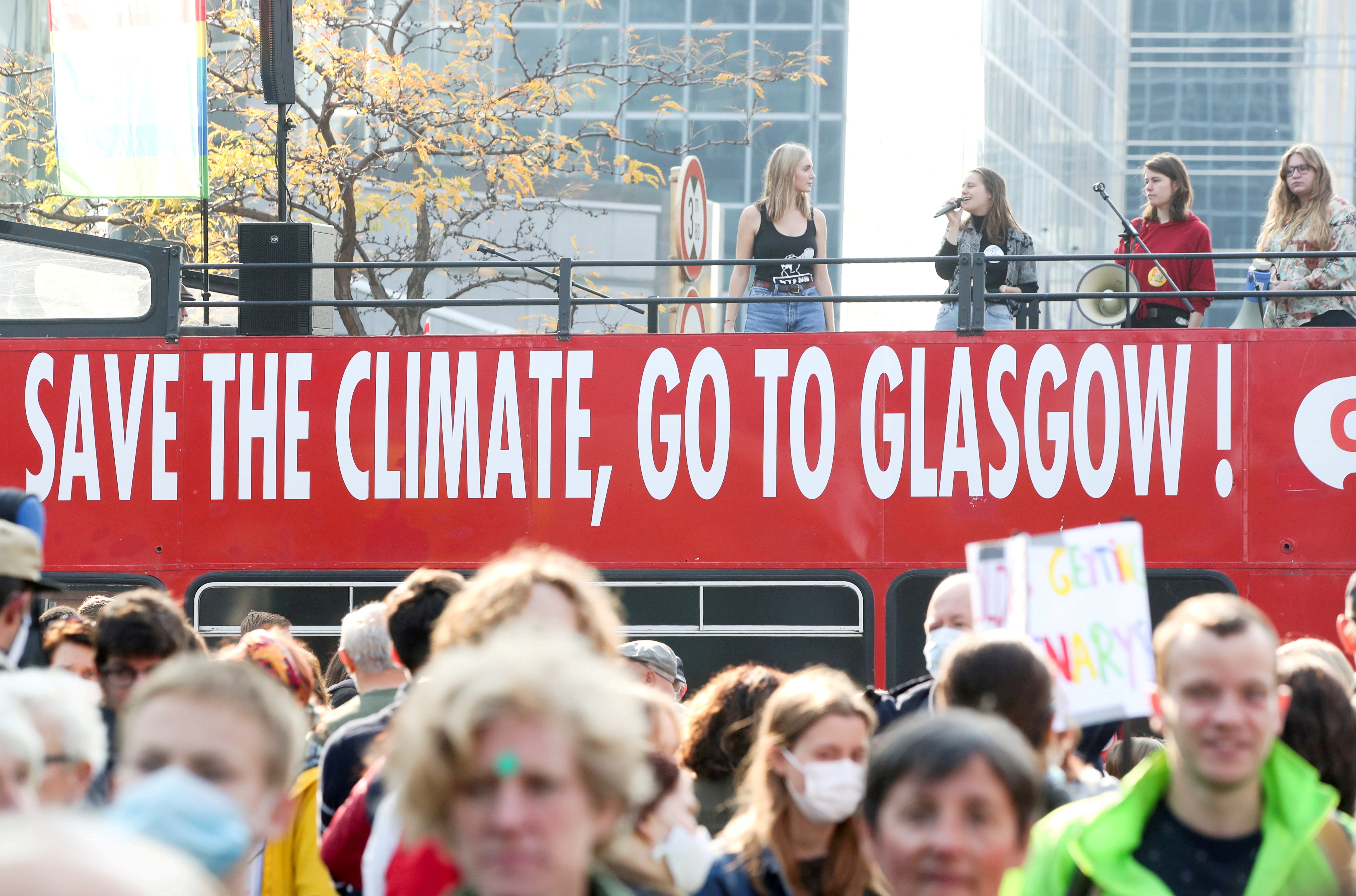Stand by for the ‘blame game’ if Cop26 doesn’t go as hoped for Boris Johnson
Although he would happily have claimed the credit for a successful summit, criticism in the event of failure should not be laid all at the prime minister’s door, writes Andrew Grice


What a difference four weeks makes. When Boris Johnson addressed the UN general assembly in New York last month, he described the Cop26 climate conference in Glasgow as “the turning point for humanity” when the world must limit the rise in temperature to 1.5C.
As 25,000 people from 197 countries, including 120 presidents and prime ministers, start the two-week conference, Johnson’s trademark optimism seems to have a supply chain problem. This week he described the outcome as “touch and go” and said the “very, very tough” summit “might go wrong”. UK ministers warn privately the summit will not be “the last word” on 1.5C. For once, the politicians are not performing their old trick of downplaying expectations, so things appear better on the night. “It's looking challenging and difficult,” one UK official told me.
When the UK won the Cop26 presidency two years ago, the prime minister saw a huge opportunity to showcase “global Britain”. There was brave talk in government of hardening up the agreement at the 2015 Paris summit to keep the world’s temperature rise above pre-industrial levels to well below 2C and pursue efforts to keep it below 1.5C. Perhaps the new goal could be a firm commitment to 1.5C and therefore “net zero” greenhouse gas emissions by 2050.
But Paris was the easy bit – shaking hands on a target. Cop26 was always going to be much harder, getting firm pledges from individual countries to deliver it. Although some might move further in Glasgow, the UN’s estimate of current pledges shows the temperature could rise by 2.7C by the end of the century.
“1.5 to stay alive” is the cry from low-lying island states threatened by the climate crisis. Now “keeping 1.5C alive” is the best outcome Johnson can hope for in Glasgow, coupled with a recognition that the world will need to go further and faster in the next few years.
By initially raising great expectations for Glasgow, Johnson went against the advice of his Cop26 president Alok Sharma, who has worked tirelessly to broker a compromise in his travels around the world, but who critics say lacks the clout for such a herculean task. Stand by for a blame game if Cop26 ends with negative headlines.
Should Johnson have engaged earlier and more fully? Probably. His aides insist he made the case forcefully in every phone call with fellow world leaders for the past 18 months. But the timing of his recent holiday in Marbella raised eyebrows in Whitehall. Aides insists the “net zero” strategy launched last week shows the UK is leading the world. But given the blindingly obvious need to win the trust of countries, the UK’s Cop presidency has been undermined by its £4bn-a-year cut to overseas aid in the middle of a pandemic. It was noticeable that Rishi Sunak did not use any of the £50bn at his disposal in his Budget to right that wrong before 2024-25. The chancellor also put distance between himself and Johnson on climate by not mentioning the word and by cutting air passenger duty on domestic flights.
Johnson’s critics argue he has been too focused on the 2050 target when he should have put more energy into securing a 50 per cent cut in emissions by 2030; they are on course to fall by only 7.5 per cent, according to the UN.
All is not lost. Johnson will try to persuade the G20 – countries responsible for 80 per cent of greenhouse gas emissions – to phase out their use of coal at their meeting in Rome this weekend. In Glasgow, he will point to progress by the rich nations towards their promise to provide $100bn (£73bn) a year to help poor countries cope with climate change, although it will arrive three years late, in 2023.
Although he would happily have claimed the credit for a successful summit, blame in the event of failure should not be laid entirely at Johnson’s door. Without a more significant offer by China, the largest emitter of greenhouse gases, real progress would have been difficult for any host. “India won’t jump unless China does,” one UK source said. “India mistrusts western governments, especially the Germans.” So the outcome in Glasgow might depend on the last-minute efforts of John Kerry, the US climate envoy, to extract concessions from China.
Although it would hardly be the “turning point” the world needs, Johnson hopes to be able to claim at the close of the summit that the UK has kept the flickering flame of 1.5C alive. “That is now the definition of success but it’s a low bar,” one insider admitted.



Join our commenting forum
Join thought-provoking conversations, follow other Independent readers and see their replies
Comments